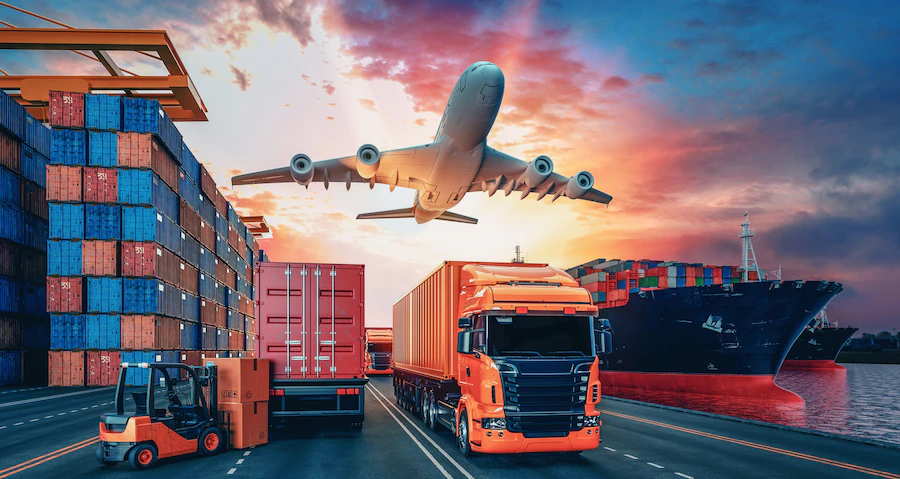FCA Incoterms: Does Your Business Need This? [According to Experts]
31 October 2024
6 Mins Read

toc impalement
“I’m new to this, and I don’t know what FCA Incoterms are.”
Hi, if this is something you are probably thinking about, I am here to help you! Let me tell you something.
The ICC has created nearly eleven Incoterms for a smooth trading process. The FCA Incoterm is one of them.
It aims to eliminate any confusion that the buyers and sellers might have in the case of shipment. It also defines the exact obligations of both parties in the exportation of goods.
Read till the end to learn it all…
Understanding Incoterms
The International Chamber of Commerce (ICC) provides a list of Incoterms, or international commercial words, to promote global trade.
By outlining the responsibilities of both buyers and sellers, Incoterms, which are widely accepted, avoid misunderstandings in international trade agreements.
Parties engaged in domestic and international trade usually shorthand Incoterms. In this way, they can better understand one another and the specifics of their business agreements.
Certain Incoterms are specific to transportation across the water, while others apply to all forms of transportation.
What is FCA Incoterms?

FCA stands for Free Carrier Agreement. It is an Incoterm that defines the buyers’ and sellers’ responsibilities and obligations regarding shipping agreements.
According to the FCA Incoterm, the seller delivers the goods to the “Named Place,” a predetermined port. Exporting the shipment and all associated procedures are the seller’s responsibility.
When the cargo is prepared to be loaded onto the carrier, the buyer becomes the cargo owner. FCA applies to all modes of transportation, including rail, road, sea, and air freight.
This Incoterm gives the buyer flexibility because they may arrange carriage at a lower cost than their vendor may charge.
FCA allows the buyer to take control after the cargo has been exported, which can be risky and time-consuming for particular products. However, the buyer still bears all risks and liabilities after the commodities reach the point of departure.
What is the Buyer-Seller Responsibility in FCA Agreements?

Now that you know FCA Incoterms, it is time to learn about the most crucial things in this agreement. And these are the obligations that the sellers and the buyers have to adhere to in reward to FCA.
Yes, you read that right! Just like in the case of DAP Incoterms, there are responsibilities that both parties need to adhere to!
Here are some of them:
Sellers Responsibilities
The seller is responsible for managing the entire export procedure for the goods they sell by FCA Incoterms. The buyer assumes responsibility when the cargo is prepared for loading onto the vessel. According to the FCA Incoterms, the seller is responsible for the following:
- Packaging for Export: For export, the cargo needs to be packaged. Certain nations have particular regulations governing the export of goods. This can include distinct package types or particular markings on the packaging. The person responsible for this component must ensure the packaging complies with export laws.
- Loading Charges: These are any expenses related to loading the cargo onto the first carrier to deliver the products to the export location once they depart from the seller’s location.
- Transport to Port/Location: The costs of moving the products from the seller’s location to the designated port or site where the cargo will be shipped once loaded onto the truck. The port or location would typically be an airport, rail, or seaport.
- Clearance: The expenses and obligations related to exporting the goods formally from the country of origin are known as export duty, taxes, and customs clearance. This could involve pre-shipment inspections, customs inspections, or any additional clearance needed to export the goods.
If a seller asked for payment for any of the abovementioned obligations, that would violate the purchase agreement.
When the seller quotes a price to the customer, they consider the costs they incur to carry out the responsibilities.
The shipment can be delivered to the buyer after these obligations have been fulfilled. The buyer is responsible for all risks related to the subsequent shipping stages.
Buyers Responsibilities
The risk passes from the seller to the buyer after the cargo passes customs and reaches the Named Place. The buyer must complete the following tasks to complete the logistical procedure.
Here are the responsibilities of the buyer according to FCA Incoterms:
- Origin Charges: These are related to the shipping terminal when the cargo is loaded onto the assigned vessel for most transportation procedures.
- Loading on Carriage: The shipping line requires a loading charge to load the cargo onto the carriage.
- Carriage Charge: The freight cost they incur when transporting goods from the port of origin to the port of destination.
- Insurance: Although it is not required, the buyer must decide whether they want insurance coverage.
- Charges at the Destination Terminal: Any fees related to unloading, moving, and storing the load while it awaits the official import procedure after the cargo has reached the destination port.
- Delivery to the destination: Delivering the goods from the destination port to the buyer’s specified delivery location.
- Unloading at Destination: Any expenses related to unloading the cargo at the delivery location that the customer has specified.
- Import Duty, Taxes, and Customs Clearance: The buyer bears all expenses and liabilities related to importing the products. The buyer must comply with any inspections, duties, taxes, or other requirements made by customs officials or to reimburse them.
Why do People Prefer FCA Incoterms?

According to international traders and transportation businesses, EXW is the worst Incoterm for buyers. Why? That’s because all the risk is on them.
Since the seller handles the export procedures under FCA, the customer regains some control. Therefore, FCA is far superior to EXW when compared side by side.
Once the seller officially exports the cargo, FCA gives the buyer a choice over how they transport their goods. Some buyers believe they may benefit from this Incoterm as they can manage every moving component of the logistics chain.
FCA can benefit Incoterm purchasers who acquire goods that are frequently containerized and have a reliable third-party logistics provider or freight forwarder.
With FCA, all post-formal export logistics expenses are under the buyer’s control.
From the port of origin to the final destination, they may rely on their shipping service provider to find the best deal and solution for their goods. When buyers are certain that their shipping service provider can outbid the seller on loading fees, they employ the FCA Incoterm.
When do Traders NOT Use FCA Incoterms?

For ocean shipments, FCA is less common than FOB for a reason. The buyer is liable for terminal and loading expenses since FCA mandates extra procedures at the port of origin before the buyer can intervene.
Although the buyer has no trouble paying these expenses, inefficiency occurs if there is a problem. Whether the cargo is in the buyer’s or seller’s nation determines who is best suited to handle any problems that arise throughout the shipping procedure.
There is a reason why the International Chamber of Commerce advises against using this Incoterm for anything other than containerized goods. In most containerized transport operations, the container will go from the seller’s warehouse to the terminal.
Since the terminal is the Named Place in this case, the risk transfer occurs following the completion of the export procedures.
There is a transfer of risk after the truck reaches its destination if the FCA is a quoted Incoterm. In this case, the buyer asks the sellers to send the product to a Named Place apart from the port. This is more like a forwarder warehouse.
In this case, the buyer would have to pay for the export procedures, terminal fees, carriage loading charges, and the cost of unloading the package at their forwarder warehouse.
There is little difference between the FCA and the EXW if you are shipping under FCA but are not transporting the cargo straight from the manufacturer to the vessel.
FCA challenges the existing quo in some nations, like China. Most vendors will comply with purchasers who insist on buying on FCA terms. Chinese sellers are notably more likely to quote under FOB terms, nevertheless.
When Should You Use the FCA Incoterms Agreement for Your Business?
A buyer would only want to think about FCA if they are able to adhere to the majority of the following requirements:
- They are shipping containerized stuff.
- They are using a shipping service or already know the logistics procedure and regulations in the seller’s nation.
- If the seller prefers FCA over FOB or FAS.
- The seller ships the cargo for export straight to the terminal instead of going to the warehouse of the shipping service provider.
FCA is a good choice as an Incoterm if the parties can fulfill these four requirements.
Read More:


















Comments Are Closed For This Article